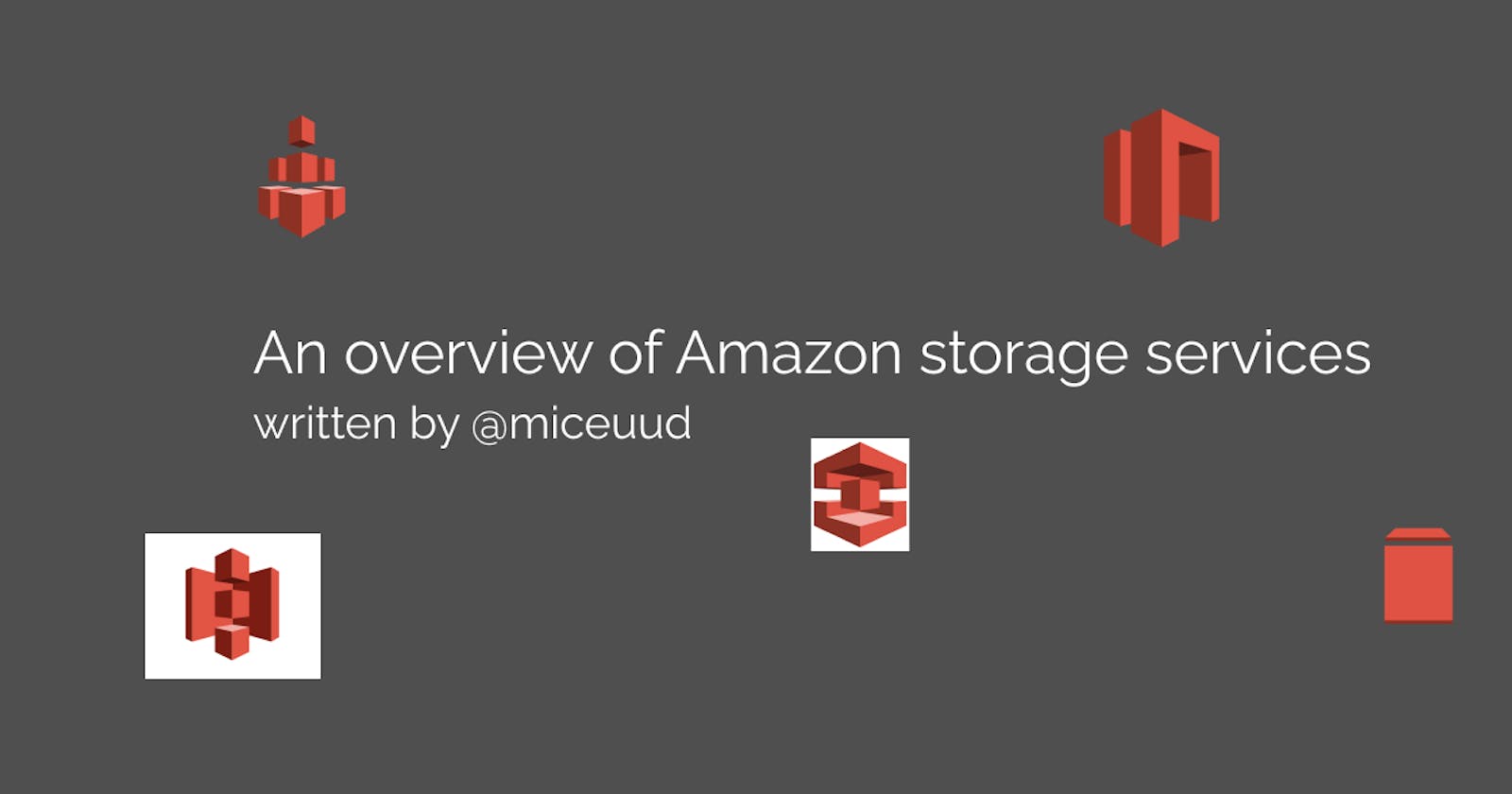Choosing the right cloud service amongst different services offered by Cloud Service Providers(CSP) can be overwhelming if you are just starting out. Today, I will focus on the Amazon Web Service(AWS) platform, describing some of its services, service types, and features.
This will be a series with an overview of services offered by AWS. In this blog post, we will focus on storage services.
What is AWS
AWS is a cloud-based service provider that provides reliable and scalable cloud computing services. These services are on-demand with a pay-as-you pricing model.
AWS offers different services, some of those services are compute, storage, database, security, containers, security, identity, and compliance.
AWS Storage Services
Amazon Simple storage service (Amazon S3)
This is an object-level storage service provided by AWS. You can use it to store and retrieve any amount of data. The data can be files, pictures, videos, etc. It’s highly durable.
Amazon S3 can be used as storage for web and mobile applications, data lake, backup and restore.
Amazon S3 offers different storage classes that you can choose from for specific needs:
Amazon S3 Standard: good for storing frequently accessed data. The data is stored in different availability zones(AZ).
Amazon S3 Standard-IA: designed for long-lived and infrequently accessed data. Data are stored across different AZ’s.
Amazon One Zone-IA: also designed for long-lived and infrequently accessed data but it is stored in only one AZ.
Amazon S3 Glazier: low-cost file storage service that provides storage for data archiving and backup.
Amazon S3 Glacier Deep Archive: low-cost storage with durable and secure long-term storage.
Amazon S3 Intelligent-Tiering: optimize cost for storage by determining and moving data across different storage classes depending on their access.
Amazon Elastic Block Store(EBS)
Provides block-level storage volumes for use with EC2 instance. It’s persistent storage, meaning data stored in EBS lives after EC2 instance termination.
Types
- General Purpose SSD volumes (gp2 and gp3): ideal for use cases such as boot volumes, development, and test environment.
Provisioned IOPS SSD volumes (io1 and io2): designed for I/O-intensive workloads.
Throughput Optimised HDD volumes (st1): provide low-cost magnetic storage.
Cold HDD volumes (sc1): provide low-cost magnetic storage, best for infrequent access to your data and it saves costs.
Amazon Backup
Fully managed backup service. Makes it easy for you to centralize and automate the backup of data across AWS services in the cloud as well as on-premises.
Amazon Elastic File System (Amazon EFS)
Provides file storage for your Amazon EC2 instances, allowing you to create and configure shared file systems quickly and easily. It's a fully managed service.
AWS Snow Family
This service helps with the physical transport of up to exabytes of data in and out of AWS.
Types
AWS Snowball: this is an edge computing, data migration, and edge storage device that comes in two options; compute-optimized and storage-optimized.
AWS Snowmobile: helps in moving up to 100 PB of data in a 45-foot long ruggedized shipping container.
AWS Storage Gateway
Connects an on-premises software appliance with cloud-based storage to provide seamless and secure integration between your on-premises IT environment and the AWS storage infrastructure in the cloud. AWS Storage Gateway offers file-based, volume-based, and tape-based storage solutions.
Amazon FSx
Provides fully managed third-party file systems with native compatibility. Makes it easy and cost-effective to launch, run, and scale feature-rich high-performance file systems in the cloud.
Conclusion
Thank you for reading, I hope you learned a lot from this article.
Click the links below for more information on each of the services mentioned:
Also, let's connect on Twitter.
Enjoy 🎉
